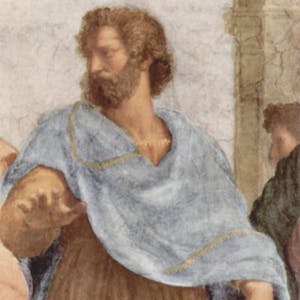Embark on a journey tracing the origins of Western philosophy in Ancient Greece. This course delves into the fundamental questions of philosophy and the development of philosophical systems by notable thinkers such as Plato, Aristotle, Epicurus, and Stoics in the Hellenistic period.
Uncover the distinctions between philosophy, science, and religion while studying the major doctrines and ideas that have shaped philosophical discourse for centuries.
Certificate Available ✔
Get Started / More Info
Embark on a comprehensive exploration of Ancient Philosophy, covering Aristotle’s Categories, Natural Philosophy, Ethics, Epicureanism, and Stoicism. Delve into the major doctrines and ideas that have shaped philosophical discourse for centuries.
Uncover Aristotle's Categories, exploring the subjects and predicates, universals and particulars, and the nature of substance and change. Delve into the fundamental concepts that underpin Aristotle's philosophical framework.
Explore Aristotle's Natural Philosophy, delving into matter, form, change, natural teleology, and the concept of soul as a cause. Gain insights into Aristotle's views on the nature and causes in the natural world.
Dive into Aristotle's Ethics, examining the eternity of motion, the first mover of the cosmos, the goal of life, and the concept of happiness and living well. Explore Aristotle's ethical framework and the virtues of character.
Delve into Epicureanism, studying the philosophical views of Epicurus on nature, the gods, pleasure, pain, and the pursuit of a tranquil life. Explore the core tenets of Epicurean philosophy and its approach to living a fulfilling life.
Discover Stoicism, examining the Stoic perspective on nature, fate, human action, and the concept of a good flow of life. Gain insights into the ethical and natural philosophical aspects of Stoic philosophy.
This course delves into the formative years of Korean culture, exploring the origins of Korean identity, language, and thought. Gain insights into the coexistence...
Explore the intersection of philosophy and physical sciences in this thought-provoking course. Gain insights into the origin of the universe, dark matter and energy,...
This course explores the interconnectedness of South Asian religions and ecology, emphasizing their roles in environmental protection and conservation.
East Asian Confucianisms: Humanism (1) explores the core values of East Asian Confucian humanistic tradition and its interaction with 21st-century Taiwan. It enhances...